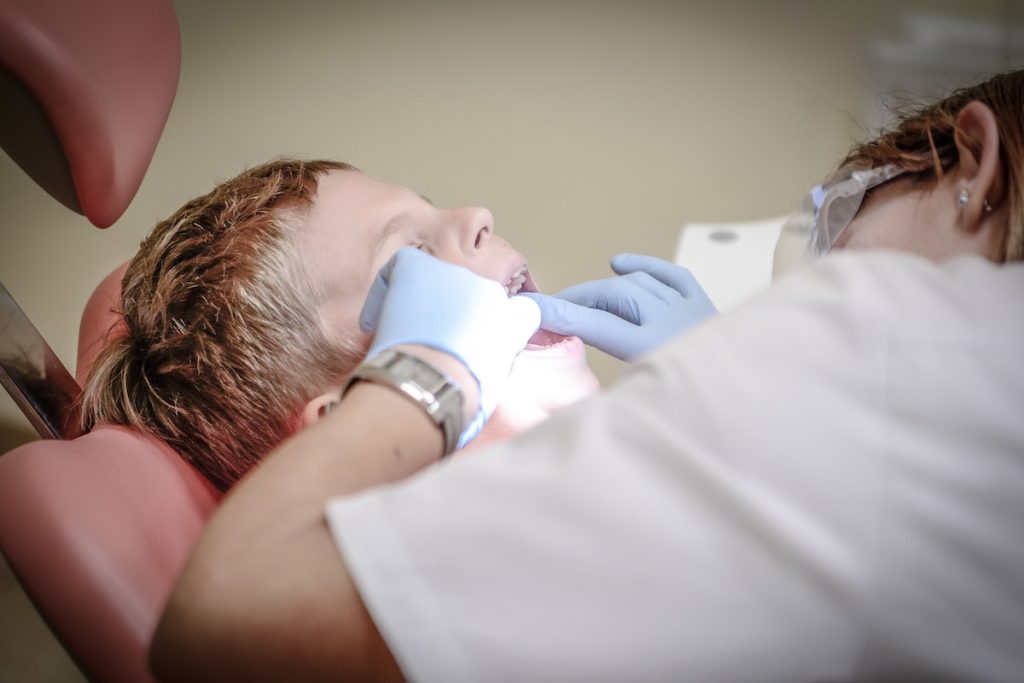As a parent, it’s natural to want to do everything you can to protect your child from pain. But unfortunately, sometimes kids will still end up experiencing some discomfort—including tooth pain. No matter how hard you try, kids will do their best to skip brushing their teeth before bed or sneaking sweets into their mouths when you’re not looking. This could cause oral problems that could lead to excruciating pain. Tooth pain, as anyone who has experienced it will attest, is no laughing matter.
While dental pain can be pretty distressing for young children, there are fortunately a few things you can do to help ease their discomfort and get them back to feeling like their happy selves again.
What Causes Tooth Pain in Children?
There are a few different things that can cause tooth pain in children. One of the most common causes is when baby teeth start coming in. Teething can cause sore gums and lead to irritability, drooling, and poor sleep.
Another common cause of tooth pain in kids is cavities. Cavities happen when plaque—a sticky film of bacteria—forms on teeth and starts to eat away at the enamel. If left untreated, cavities can become infected and cause severe pain. The food they eat, how often they brush their teeth, and whether they have fluoride in their water can all contribute to cavities.

How to Deal With Tooth Pain in Children
If your child is experiencing tooth pain, you can do a few things to help ease their discomfort.
First, give them something cold to chew on—like a frozen washcloth or ice pop—which can help numb the pain. This, of course, will only give temporary relief, but it could stop them from crying until you get to your dentist’s clinic.
You can also give them over-the-counter medication like ibuprofen or topical anesthetic gels. Pain medication also works with tooth pain by numbing the area around the tooth. Note that you should never put aspirin directly on your child’s gums, as this could burn them. As with any medication, it is best to consult a pediatrician before giving them to your child.
A saline rinse has also been shown to be effective in numbing the pain and helping to reduce inflammation. To make a saline rinse, simply mix 1/2 teaspoon of salt with 1 cup of warm water. Have your child swish the mixture in their mouth for a minute before spitting it out.
Severe pain will need intervention from a dental professional. Set an appointment at a clinic as soon as possible.
At the Clinic
When it comes to dental procedures for tooth pain, the first step is usually to take a look at the tooth and see what’s going on. This can be done with a simple visual inspection or with an x-ray. Once the dentist has an idea of what’s causing the pain, they can then start treatment.
The dentist may need to perform a root canal if the tooth is infected. This is a procedure in which they remove the infected tissue from the tooth’s root canal. They may also need to fill the space left behind with a special material called gutta-percha.
If the tooth is abscessed, the dentist will need to drain the pus from the abscess. This can be done in a few different ways, but one of the most common is to drill a small hole in the tooth and let the pus drain out. The dentist may also need to prescribe antibiotics to help clear up any infection.
Prevention is Better Than Cure
Not every child will experience tooth pain. However, by taking steps to ensure good oral hygiene, you can help reduce the risk. Here are a few things you can do:
Encourage your child to brush their teeth at least twice a day with fluoride toothpaste.
Make sure they’re getting enough fluoride. This can be done by using fluoridated water when brushing their teeth or by giving them fluoride supplements if they live in an area with little to no fluoride in the water.
Limit their sugary snacks and drinks. While kids enjoy sweets, sugary treats are really bad for the teeth and a person’s overall health. Swap the cookies and candies with healthier alternatives such as berries.
Take them for regular dental check-ups so any problems can be caught early. Professionals recommend a dental check-up at least twice a year.
Dealing with dental pain can be tough for both kids and parents—but fortunately, there are things you can do to help ease the discomfort. Giving your child something cold to chew on, giving them over-the-counter medication (with your pediatrician’s okay), and making sure they’re brushing and flossing regularly are all effective ways to deal with tooth pain.

